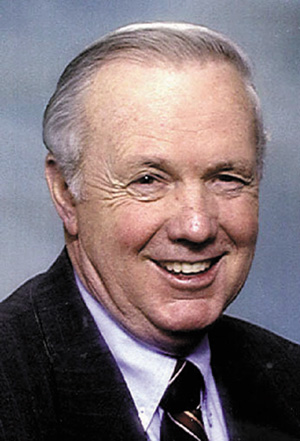No. 614 - DON'T EMBARRASS YOUR CHILDREN
No. 614
Jim Davidson -- NEWSPAPER COLUMN
DON’T EMBARRASS YOUR CHILDREN
Would you believe that literally untold thousands of parents in America today are embarrassing their children to tears, in most cases, without even being aware of it? This is true, but fortunately there is something we, or rather they, can do about it. All it requires is a little behavior modification, which may not be easy but will be well worth the effort.
What I am talking about is the passion our nation has for sports, which is now a year-round affair, and parents who get too emotionally involved in their children’s games and “show out” to the point it becomes highly embarrassing to their own children. If you have this problem, even borderline, please read on, because I have some thoughts to share that may be helpful.
In Arkansas we have a state treasure in the person of Dr. Betty Lowe, a pediatrician, past medical director of Arkansas Children’s Hospital in Little Rock and professor emeritus at the University of Arkansas for Medical Sciences. She writes a column titled “Ask Dr. Lowe” that is sent to me as a press release from Arkansas Children’s Hospital. The reason I share this with you is because I want you to know that what I am going to say is not just something off the top of my head, but shared by a person who has spent years in education, training and practice with children as her lifelong calling.
If you are a parent and have children or grandchildren involved in sports, please put yourself in the picture. A mother has a 12-year-old son who is playing Little League baseball and his father is extremely proud of him. She writes, “My husband gets so involved during the game that he sometimes yells and screams at the opposing team and occasionally gets angry and makes comments to the umpires and coaches. I’ve urged him to try to control himself more, because he embarrasses our son. I want my husband to be involved, but he just gets carried away. Can you offer any advice?”
As a parent or grandparent who is involved in your child’s sports, does this sound like anyone you know? The point that should not be overlooked here is that when adults get too emotionally involved, it becomes very embarrassing and it hurts the child because they have to be around and interact with the other children. Often they have to endure the stares that come when this takes place. Most parents would never do this intentionally, but they just get so carried away they don’t even realize what they are doing and the damage it causes.
Sports can offer many positive life lessons and experiences for children, especially when it comes to exercise in these days of high childhood obesity. In addition to this, sports teach teamwork, emphasize the principle of trying your best and improving with practice, and focus on how to win or lose with grace. Although all sports are competitive, three major reasons children, particularly pre-teens, indulge in sports are: 1. Sports are fun. 2. Children enjoy learning skills and improving. 3. Winning is rewarding and builds confidence.
Parents can taint these valuable lessons or enjoyable activities when they become unruly, negative or abusive. The American Academy of Pediatrics and Positive Coaching Alliance offer several suggestions to help parents act more sportsmanlike at their child’s activities. Here are some of these: 1. Tell your child that you are proud of him and will be pleased no matter how well he or his team plays. 2. Don’t give instructions during the game; that’s the coach’s job. 3. Cheer good plays by both teams. 4. Talk about good calls by the officials. If there’s a bad call, bite your tongue.
5. Rather than acting in the heat of the moment, consider that your excitement or anger may lead you to do something that will embarrass you and your child and his team. 6. Have fun and enjoy the game. 7. Thank officials and coaches. 8. Don’t give advice. Ask your child what he thought about the game and then listen.
For most children, sports can be a wonderful and enjoyable experience. Generally speaking, children who are involved in sports do better in school, have enhanced self-esteem, are better adjusted socially and experience less depression.
Parents must realize they cannot participate in sports through their child, but should relax and enjoy the activity and the obvious enthusiasm the child gets out of participating in sports. If your son or daughter is involved in sports at any level, why not clip out this column and place it on your refrigerator as a constant reminder to be a supportive parent, and to never ever embarrass your child by your behavior.
---
(EDITOR'S NOTE: Jim Davidson is a public speaker and syndicated columnist. You may contact him at 2 Bentley Drive, Conway, AR 72034. To support literacy, buy his book: “Learning, Earning & Giving Back.”)
